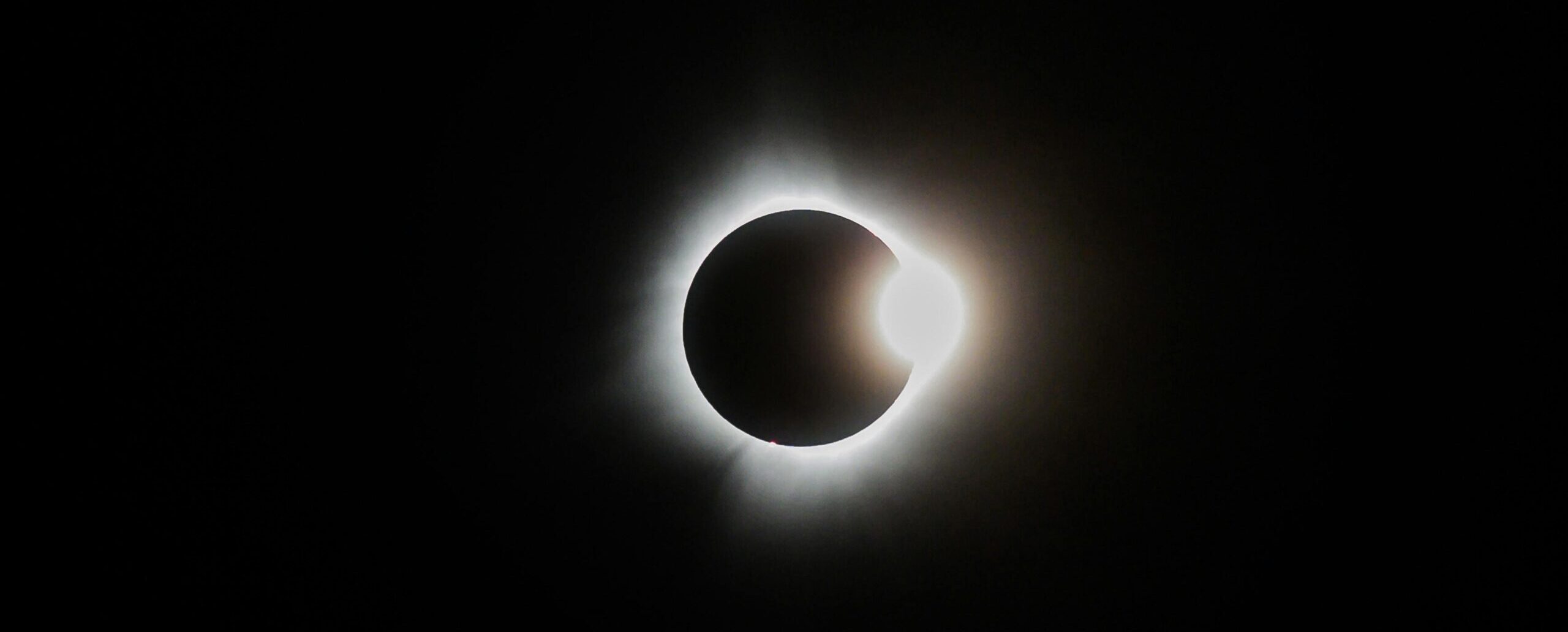Join Our Campus-Wide Event on April 8, 2024
Take in the Eclipse With Your Loved One

On April 8, 2024, a total solar eclipse is set to occur. The city of Cleveland lies within the path of totality—meaning there will be nearly four minutes of darkness in the middle of the afternoon! This is more than a once-in-a-lifetime event: According to the Cleveland Museum of Natural History, Cleveland won’t be in the path of totality for an eclipse again until 2444.
To mark this occasion, McGregor is hosting a campus-wide event on the afternoon of the 8th so that our residents can enjoy the eclipse with their family members. There will be unique events at each of our patios at Assisted Living, Independent Living, and Nursing Care, and all are welcome to gather on the large lawn space located at the center of our campus. There will be Moon Pies, Mars bars, and more!
How to Safely Enjoy the Total Eclipse
Observing a total solar eclipse can be a breathtaking experience, but it’s crucial to do so safely to protect your eyes. Here are some tips:
- Use Solar Viewing Glasses: Make sure you have certified solar viewing glasses that meet the ISO 12312-2 international safety standard. These glasses block harmful ultraviolet, visible, and infrared radiation. Regular sunglasses are not sufficient. At our event, McGregor will be handing out sets of two glasses to each resident so that you can share with your family.
- Don’t Forget Solar Filters: If you plan to use telescopes or binoculars to get a closer look at the eclipse, make sure to attach solar filters to the front of these devices. Never look through them without proper solar filters, as the intensity of sunlight can damage your eyes. The same applies to your camera: Without protection, the sunlight could damage your camera’s sensor.
- Be Mindful of Animals: Animals may exhibit unusual behavior during a solar eclipse. If you’re watching the eclipse at your home, keep an eye on your pets, as they may become confused or anxious due to the changing light conditions. For example, some daytime-active birds may briefly display nocturnal activities, like foraging, during the eclipse, and then will return to their daytime activities as the eclipse passes.
We look forward to seeing you then!

